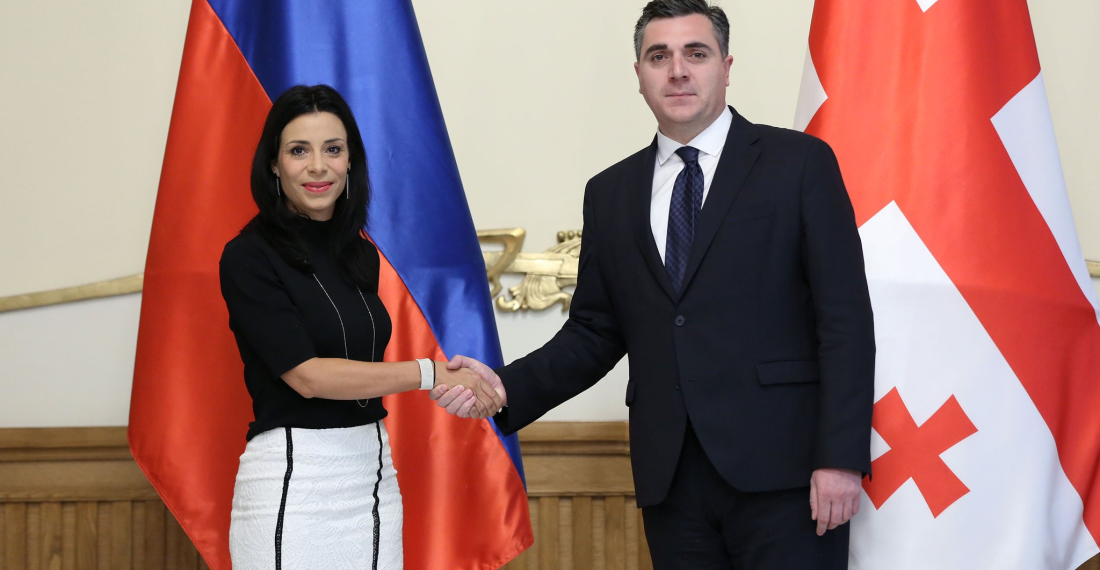Liechtenstein's Minister for Foreign Affairs, Education and Sports Dominique Hasler is making her first official visit to Georgia from Sunday (11 June) to Tuesday (13 June).
Immediately after arriving on Sunday, Hasler visited Odzisi, the closest village to the administrative line separating Russian-occupied South Ossetia from the rest of Georgia "to get acquainted with the ongoing situation in areas adjacent to the line", according to agenda.ge. The First Deputy Minister of Foreign Affairs of Georgia, Lasha Darsalia, accompanied Hasler to the occupation line.
On Monday (12 June), Hasler also met with her Georgian counterpart Ilia Darchiashvili, as well as with the Speaker of the Georgian Parliament, Shalva Papuashvili, and the Georgian Prime Minister, Irakli Garibashvili.
Describing Hasler's first official visit to Georgia as "historic", Darchiashvili highlighted the two states had potential to further strengthen economic ties through Georgia’s agreements via the European Free Trade Association, of which Liechtenstein - the six smallest country in the world - is a member.
Speaking in a joint press conference with Ilia Darchiashvili, Hasler said that her country "fully supports the freedom, independence and territorial integrity of Georgia. Also, the protection of the rule of law and democratic principles is very important."
"The support for Georgia's independence means creating a European perspective for Georgia and integration into European structures. This is our absolute support," Hasler said.
"Our bilateral, young relations will be strengthened in the future. I look forward to your arrival in Liechtenstein, where we will be able to exchange views on education and many other projects", she told her Georgian counterpart.
Education, science and trade cooperation discussed with Speaker and Prime Minister
In a meeting with the Speaker of the Georgian Parliament Shalva Papuashvili, Hasler discussed cooperation with Georgia in "various sectors" and deepening parliamentary ties between Georgia and Liechtenstein. The officials also discussed cooperation in the fields of education and science.
Finally, on Monday (12 June), Hasler also met with the Georgian Prime Minister Irakli Garibashvili in a meeting described by the Georgian Government Administration as an "important milestone" in bilateral relations which would give a “new impetus" to future cooperation between the two countries.
Discussions focused on trade and economic relations, as well as cooperation in education and sports.
source: commonspace.eu with agencies
photo: Twitter






